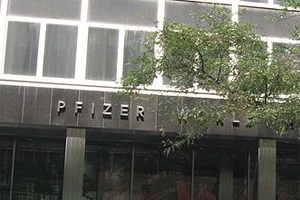 Pfizer is hopeful that its Mylotarg product – pulled from the market in 2010 – could be resurrected on the strength of new data in acute myeloid leukaemia (AML).
Pfizer is hopeful that its Mylotarg product – pulled from the market in 2010 – could be resurrected on the strength of new data in acute myeloid leukaemia (AML).
Two new investigator-led studies of Mylotarg (gemtuzumab ozogamicin) in AML have been presented at the American Society of Hematology (ASH) meeting this week which suggest the decision to withdraw the product may have been premature.
Mylotarg made history in 2000 when it became the first antibody-drug conjugate (ADC) to be approved for sale, and indeed was the only ADC on the market during the following decade.
The drug was eventually undermined by suggestions that its antibody target (CD33) was not as selective for tumour cells as first thought, as well as problems with the linker technology that allowed its cytotoxic payload to be released prematurely.
Pfizer kept producing Mylotarg in order to make it available on compassionate use grounds in Europe and this has given independent investigators the opportunity to continue to study the drug.
Since it was withdrawn, some of its safety problems have been limited by using smaller, more frequent dosing and combining it with chemotherapy to boost efficacy.
One phase III trial – called AML-19 – that was reported at ASH found that Mylotarg significantly improved overall survival (OS) compared to best supportive care in elderly patients with AML who were not considered fit for intensive chemotherapy.
Meanwhile, the ALFA-0701 trial showed that the combination of Mylotarg with standard chemotherapy regimen daunorubicin and cytarabine significantly improved event-free survival (EFS) and relapse-free survival (RFS) in adult AML patients at three years, compared to chemotherapy alone.
“We are encouraged by the significant clinical evidence emerging from large randomized trials … demonstrating a positive impact of Mylotarg when added to standard first-line treatment for patients with AML,” said Mace Rothenberg, chief medical officer for Pfizer Oncology.
“We are engaging in discussions with the FDA and other health authorities to determine the best path forward for Mylotarg”, he added. Meanwhile, Pfizer has said it will expand the compassionate-use programme operating in Europe with an expanded access programme for the drug in the US.
Phase II data back follow-up ADC
Meanwhile, a phase II study of one of Pfizer’s follow-up ADCs – the CD22-targeting inotuzumab ozogamicin – showed the drug was associated with a 69% complete response rate in patients with relapsed/refractory acute lymphocytic leukaemia (ALL), which accounts for around 8% of all leukaemia cases.
A second phase I/II trial showed that inotuzumab ozogamicin – added to low intensity chemotherapy (with cyclophosphamide, dexamethasone, methotrexate and cytarabine) – achieved a complete response (with or without platelet recovery) of 96% after 13 months’ follow-up.
Pfizer is currently conducting a phase III trial of the ADC – called INO-VATE ALL – that is expected to generate results in 2015. Inotuzumab ozogamicin was previously tested in non-Hodgkin’s lymphoma but failed to show a survival benefit in pivotal trials.
More than 30 ADCs are currently in clinical trials and more than 200 are reported to be in preclinical development, according to data from BioPlan.




